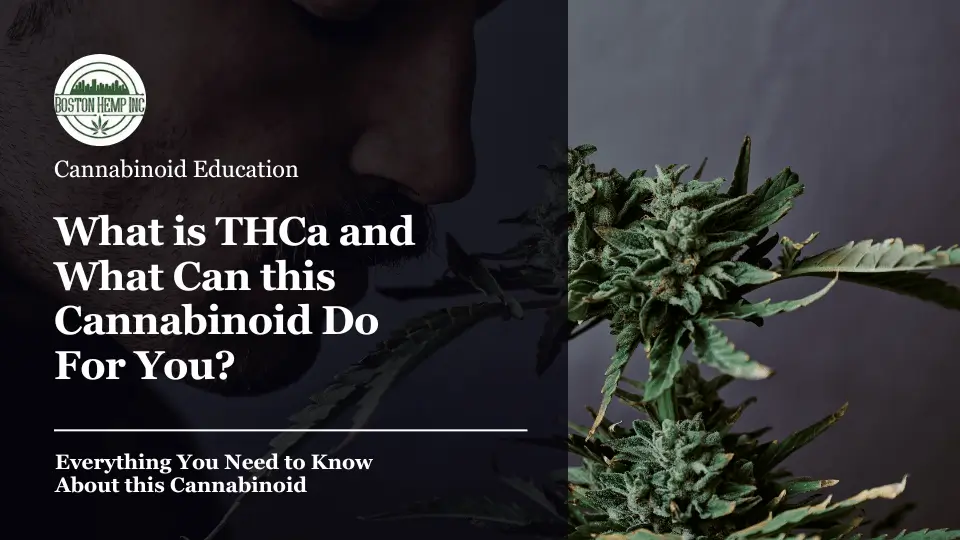THCa is one of the many raw cannabinoids that the cannabis plant produces and is the precursor to THC.
It’s mainly concentrated in the flowering tops of the plant but can be found in very small amounts in the leaves, and even smaller amounts in the stems and stalks (if at all).
In this article, we will cover some of the most common questions about THCa, an up-and-coming cannabinoid found in the cannabis plant, including:
- Intoxicating Effect of THCa found in marijuana
- How to use THCa in any particular cannabis product
- THC vs THCa
- Finding THCa in cannabis flower
- Benefits of THCa
- and more
So let’s get to it, by answering one of the most asked questions…
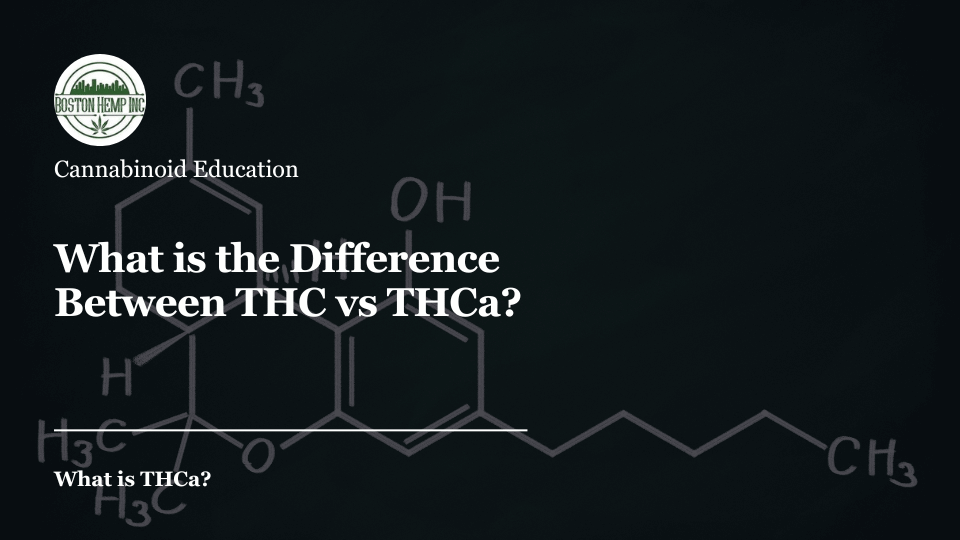
What is the Difference Between THC vs THCa?
Both THC (Delta-9-tetrahydrocannabinol) and THC-a (Tetrahydrocannabinolic acid) are cannabinoids present in the cannabis plant, but their unique chemical compositions lead to different properties and effects.
The THCa molecule is the “acid form” of THC.
Now what the heck does that mean? It suggests that THCa does not bind like THC does. THCa is the acidic form of THC.
I don’t mean to get all technical, but what this means is that this form of THC is not psychoactive. If you want to get all nerdy and geek out on the sciency stuff check out this article on the acid form of cannabinoids.
THCa (Tetrahydrocannabinolic acid):
- A precursor to THC: THCa is the non-psychoactive acidic precursor to THC. It’s found in raw and live cannabis plants. When cannabis is heated, through smoking, vaping, or cooking, THCa decarboxylates and converts into THC.
- Non-Psychoactive: As THC-a doesn’t affect the brain in the same way, it won’t get you “high” in its raw form.
- Potential Benefits: While research is still in the early stages, THCa has shown potential for anti-inflammatory, neuroprotective, and anti-nausea effects among others.
THC (Delta-9-tetrahydrocannabinol):
- Psychoactive Properties: THC is the primary psychoactive component of cannabis, responsible for the “high” sensation. It interacts with the endocannabinoid system, particularly binding to the CB1 receptors in the brain and nervous system.
- Effects: Besides its psychoactive effects, THC has been noted for its potential therapeutic benefits, including pain relief, appetite stimulation, and nausea reduction.
- Legality and Availability: THC’s legality varies by jurisdiction, with many places having specific regulations regarding its use, possession, and sale.
The conversion from THCa to THC is significant because it represents the shift from a non-psychoactive to a psychoactive compound.
While both have therapeutic potential, their effects and legal status can vary greatly, making it important for consumers and patients to understand the distinction.
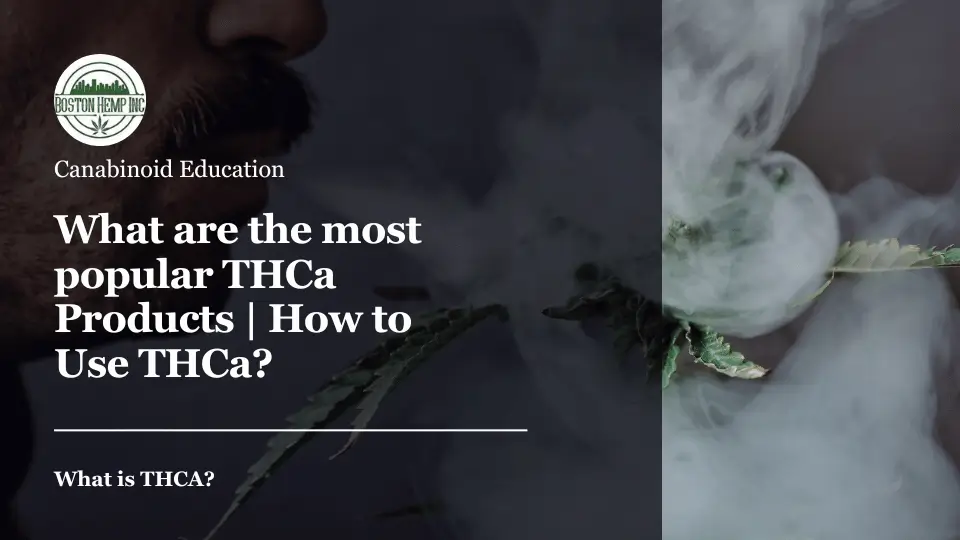
What are the most popular THCa Products | How to Use THCa?
Here’s the lowdown on THCa products from your friendly neighborhood hemp expert: the Boston Hemp Inc. team:
- Straight-up Raw Cannabis: Just like munching on fresh herbs, you can grab raw cannabis leaves and buds. Some folks juice them for a smooth, non-high vibe.
- THCa Crystals or Isolate: These are the fancy, pure stuff. Imagine almost 100% pure THCa, ready to dab or sprinkle on your food. Just remember, the heat turns it into THC.
- THCa Tinctures: These are like little drops of magic. A few under the tongue or in your tea, and you’re good to go. Super easy to measure how much you’re using, too.
- Topicals: Think of creams and lotions you rub on your skin. Great for targeting specific spots that might be feeling a bit off.
- Capsules and Edibles: If you’re not into smoking or drops, you can pop a pill or munch on an edible. Just give it time to do its thing.
- Vape Concentrates: Some are designed to keep the heat low so you get more THCa and less THC. It’s all about that cool vapor.
Just a heads up, where you live makes a big difference in what you can get your hands on, so check your local laws.
And while THCa is getting some buzz for its potential perks, the science folks are still figuring it all out.
Always go for the good stuff from reputable places, and if you’re not sure about something or have health questions, a quick chat with your doctor is a smart move. Stay savvy!
If you’re thinking about giving THCa a whirl, remember to source your stuff from reputable places.
And hey, it never hurts to have a chat with a healthcare professional, especially if you’ve got other health stuff going on or you’re taking other meds.
Stay informed and enjoy exploring what THCa can do for you!
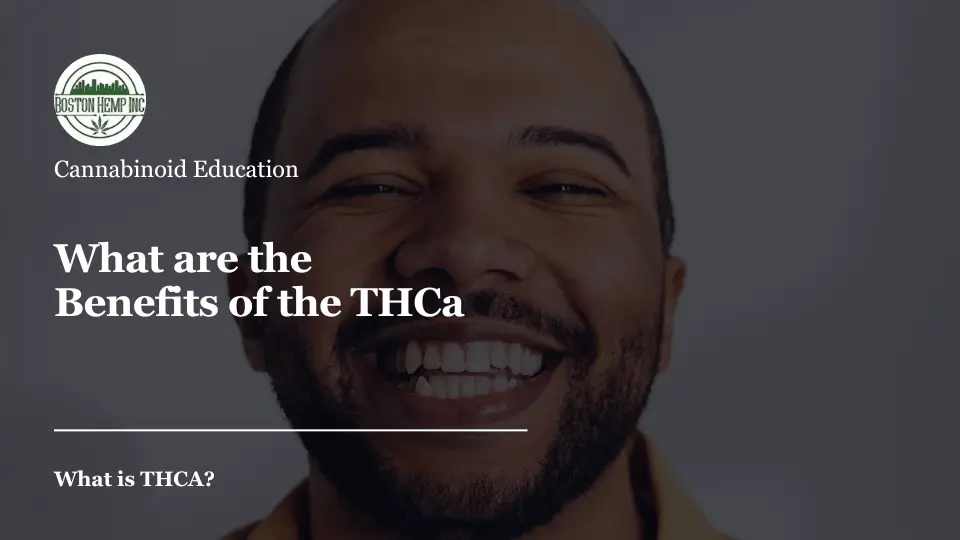
What are the Benefits of the THCa Cannabinoid?
Before it hits the heat and transforms, THC-a has its own set of potential perks, and here’s the scoop:
- No High: First off, THCa doesn’t get you high on its own. So, if you’re looking for the benefits of cannabis without the psychoactive ride, THC-a might be your buddy.
- Anti-Inflammatory: THCa is getting some attention for its potential to help with inflammation. This could be a game-changer for folks dealing with conditions like arthritis or other inflammatory issues.
- Neuroprotective Properties: There’s some chatter in the science world about THC-a possibly protecting brain cells. This could be big news for neurodegenerative diseases like Parkinson’s and Alzheimer’s.
- Anti-Nausea: Just like its cousin THC, THCa might help keep queasiness at bay. This could be a real comfort for people undergoing treatments like chemotherapy.
- Potential to Promote Appetite: While not as munchie-inducing as THC, THC-a might gently nudge your appetite, which can be a big help for those who need a little encouragement to eat.
- Pain Relief: Some anecdotal evidence and early research suggest THCa can help take the edge off the pain. It’s not a full-on painkiller, but it might help dial down discomfort.
Now, keep in mind, that while the buzz around THCa is growing, the scientific community is still piecing together the full picture.
More research is needed to understand the hows and whys.
And, as always, everyone’s body is different, so what works for one person might not work the same for another.
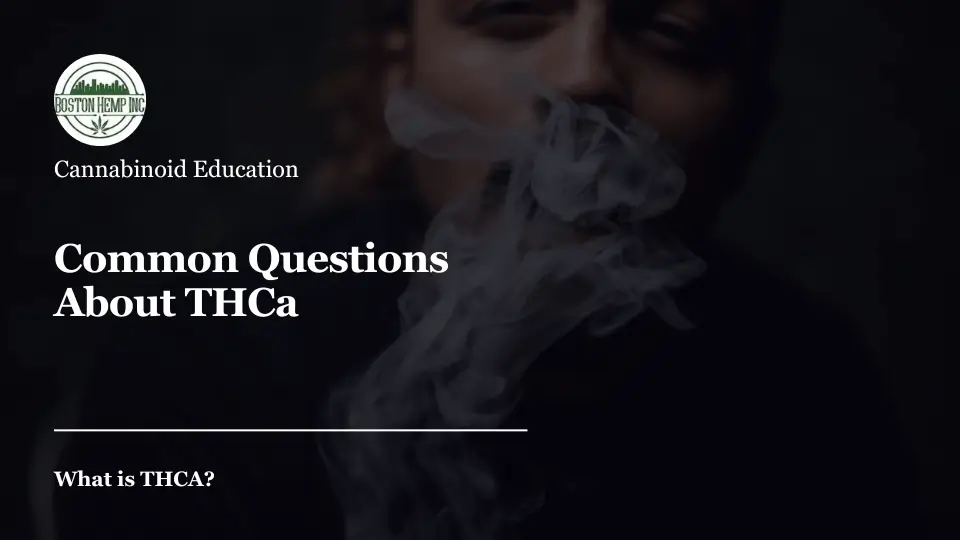
Common Questions About THCa
What is a high THCa Percentage?
In the world of cannabis and hemp, a high THCa percentage typically refers to the amount of Tetrahydrocannabinolic acid (THC-a) found in a particular strain or product.
THCa is the non-psychoactive precursor to THC, the compound that gets you “high.”
When cannabis is heated, THCa converts to THC through a process called decarboxylation.
So, what’s considered “high” THCa? Well, it can vary, but here’s a general breakdown:
- Low THCa: Around 0-5%. These strains or products won’t have much psychoactive effect, even after decarboxylation.
- Moderate THCa: Between 5-15%. This is more common and offers a balanced effect for many users.
- High THC-a: Anything over 15-20%. These strains or products are potent and are likely to produce strong effects, especially once heated and converted to THC.
Some particularly potent strains or concentrates can even reach upwards of 25-30% THCa, which is considered very high.
These are usually sought after by those looking for intense effects or with a higher tolerance.
It’s worth noting that the effects of THCa and THC can vary widely among individuals due to factors like personal tolerance, metabolism, and the overall cannabinoid and terpene profile of the product.
So, a “high” percentage for one person might not feel the same for another.
Always start low and go slow, especially if you’re trying a new product or strain with a high THCa content!
Is THCa psychoactive? Can THCA cause a high?
What you consume raw cannabis without heating it in any way and you do not convert THCa into THC you should not technically experience a high, or psychoactive effect.
So in short THCa does not produce a high… unless you heat it. THCa may however produce a high if combined with other things such as citrus or cultured foods like yogurt or saurkraut.
THCa itself is not psychoactive, but once it’s decarbxylated and the acid compound is removed it turns to THC, and bada-bing banda bang and boom boom joey it will light you up.
How powerful is THCa in cannabis?
THC-a, isn’t “powerful” in the sense of causing a high or psychoactive effect like its cousin THC.
Its “power” lies in its potential therapeutic effects rather than its ability to intoxicate.
Here’s a breakdown of THCa’s “power” in different aspects:
- Psychoactivity: THC-a is not psychoactive itself. It doesn’t produce the high associated with THC. So in terms of altering your mind or perception, it’s not powerful at all. The transformation to THC, which does have psychoactive effects, occurs when THC-a is heated through smoking, vaping, or cooking (a process known as decarboxylation).
- Potential Therapeutic Effects: THCa has been reported to have several potential therapeutic benefits. It’s been explored for its anti-inflammatory, neuroprotective, anti-nausea, and anti-proliferative properties. While these effects show promise, they are currently less “powerful” or well-understood compared to the more extensively researched THC and CBD. More research is needed to fully understand and harness these properties.
- Concentration in Cannabis: In raw cannabis plants, particularly in strains bred for high THC content, THC-a can be quite “powerful” or abundant. It’s often the most prevalent cannabinoid in fresh cannabis, with concentrations that can exceed 20-30% in some strains. However, remember that its effects will be different from THC despite its high concentration.
In summary, while THCa isn’t “powerful” in the psychoactive sense, it holds potential as a therapeutic compound.
Its power might be harnessed in different ways than THC, offering benefits without the high. As with any cannabis-derived compound, the effects and benefits can vary greatly between individuals, and more research is needed to fully understand and utilize its properties.
If you’re considering using THCa for its potential benefits, it’s a good idea to consult with a healthcare professional, especially if you have underlying health conditions or are taking other medications.
What is the difference between THC and THCa?
We wrote an entire article answering what is THCa vs THC so check that out here.
In short, THC, or tetrahydrocannabinol, is the main psychoactive compound in cannabis that produces the high sensation, while THC-a, or tetrahydrocannabinolic acid, is its non-psychoactive precursor found in the raw plant.
THCa converts to THC when exposed to heat through a process called decarboxylation, typically during smoking, vaping, or cooking.
While THC is known for its psychoactive effects and potential therapeutic benefits, THCa is being studied for its potential medicinal properties without causing a high.
What is the difference between THCa vs THCv?
Alright, so THCa and THCv are like cousins in the big cannabis family, each with their own vibe.
THCa is the non-psychoactive precursor to THC, the stuff in raw cannabis plants that doesn’t get you high until you heat it up and it becomes THC.
On the flip side, THCv, or tetrahydrocannabivarin, is a bit different. It’s another compound in cannabis, similar to THC but with a slightly different chemical structure.
THCv is kinda known for a lighter, more clear-headed high and some say it might even suppress the munchies, which is pretty neat.
While THCa is all about potential medical benefits without the high, THCv is like THC’s quirky sibling with its own unique effects and potential benefits.
So, they’re both part of the same family, just dancing to their own tunes!
We go deeper into all the main differences between the different types of THC cannabinoids in this extensive article here.
Will THCa show up on a Drug Test?
What’s the difference between THC vs Delta-8 THC?
THC typically refers to Delta-9 THC, the most well-known psychoactive component of cannabis that gives the classic “high.”
Delta-8 THC is like its close cousin, slightly different in its chemical structure, leading to a milder, clearer high with less intensity and potentially fewer anxiety side effects.
Delta-9 THC is the potent and prevalent form in cannabis, interacting strongly with the body’s endocannabinoid system.
In contrast, Delta-8 THC is less common, often sourced from hemp, and navigates a more legally gray area, offering a milder interaction.
What is THC-a flower from the Cannabis Plant?
THCa flower refers to the raw, unprocessed cannabis buds that are high in THCa, the non-psychoactive precursor to THC.
Before being heated or aged, these flowers contain THCa rather than THC, meaning they won’t produce a high until decarboxylated.
THCa flower is often used for its potential therapeutic benefits and can be consumed in ways that preserve THCa, like juicing or low-temperature vaping.
What are the most popular THCa Products?
Any hemp flower product you can produce, or any THC-based product you can make can be made from THCa.
Here are some of the most popular THCa products offered by Boston Hemp Inc. and other companies that sell THCa products:

